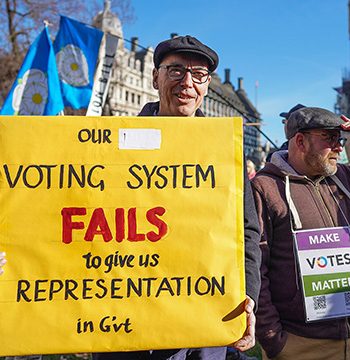Power must flow, not stagnate. Term limits prevent political entrenchment, foster fresh perspectives, and ensure governance remains dynamic and accountable. Without them, leadership turns into lifetime tenure, creating systems that serve the powerful rather than the people.
Lucius Quinctius Cincinnatus Cincinnati Ohio by amanderson2 (cropped)
DEMOCRATIC & CIVIC INTEGRITY
Cincinnatus was a Roman farmer called from his plow to serve as dictator during a crisis, granted absolute power—but he relinquished it after just 16 days, returning to his fields once the danger passed. His restraint became legendary, a model of leadership as service rather than self-aggrandizement. The myth endures because it asks a timeless question: what kind of person walks away from power when they don’t have to?
The U.S. Congress is riddled with career politicians who serve for decades, insulated from the realities of everyday citizens, enabling legislative gridlock and corporate obstructionism. Meanwhile, the U.S. Supreme Court, with its lifetime appointments, holds unchecked power, allowing justices to shape laws for generations without electoral accountability. Democracy cannot thrive under a system where individuals wield authority indefinitely.
Historically, societies have understood the dangers of prolonged power. The Athenian democracy relied on short tenures to prevent elites from consolidating control. Rome, despite its flaws, limited magistrates’ time in office to curb authoritarianism. The U.S. presidency was originally limited by tradition, but after Franklin D. Roosevelt’s four-term rule, the 22nd Amendment formally capped presidents at two terms. Yet, Congress and the courts remain exempt from such safeguards, allowing figures like Strom Thurmond to serve until he was 100 and justices to remain on the bench for half a century.
Thurmond, the staunch segregationist senator from South Carolina, famously led the opposition to the Civil Rights Act of 1957—and more broadly to civil rights legislation in general—through a mix of constitutional arguments, appeals to states’ rights, and overt racism disguised as concern for “liberty” and “order.” His opposition reached its most dramatic and symbolic expression in 1957, when he staged the longest solo filibuster in U.S. Senate history, speaking for 24 hours and 18 minutes straight in an attempt to block the bill. This record was recently broken by New Jersey’s Senator, Cory Booker, protesting actions of the current administration.
Long tenure breeds detachment, complacency, and corruption. Incumbents enjoy unfair advantages—name recognition, donor networks, and legislative control—making it nearly impossible to unseat them. As John McCain admitted, “Congress is broken. The system is designed to keep incumbents in power.” Meanwhile, Supreme Court justices, appointed for life, can block reforms that the majority of Americans support, entrenching outdated policies with no recourse for voters.
The corporate capture of government thrives under a system without term limits. The longer politicians remain in office, the deeper their ties to special interests, lobbyists, and revolving-door politics. Former lawmakers seamlessly transition into corporate boardrooms, and well-connected insiders become unelected power brokers. In 2018 alone, over 60% of retiring U.S. senators and representatives became lobbyists or corporate consultants, wielding influence without accountability. A government designed for lifetime service is a government built for corruption.
Globally, the dangers of limitless rule are clear. Vladimir Putin, Recep Tayyip Erdoğan, and Viktor Orbán have manipulated legal frameworks to extend their rule indefinitely, turning democracy into an illusion. Meanwhile, nations with strong term limits—Mexico, Kenya, and South Korea—prevent leaders from clinging to power, forcing a focus on governance rather than perpetual reelection. Studies show that term-limited legislators pursue bold reforms, freed from the need to constantly seek reelection. Term limits open space for greater political diversity, allowing more women, young leaders, and marginalized communities to enter governance.
This principle must extend beyond elected officials. Unlike presidents or legislators, justices are not accountable to voters, yet their rulings shape laws for generations. The U.S. is nearly alone in granting lifetime judicial appointments; other democracies recognize the risks. Germany’s Constitutional Court imposes a strict 12-year term limit on its justices, ensuring fresh legal perspectives and reducing ideological entrenchment.
Therefore, under Folklaw:
Elected officials shall be subject to term limits to prevent the accumulation of unchecked power. Presidents and governors shall serve a maximum of two terms. Representatives, and state legislators shall be limited to three consecutive terms.
The U.S. Supreme Court and all federal judges shall serve one non-renewable 18-year term, with staggered appointments to prevent partisan control of the courts.
Attempts to circumvent term limits through legal manipulation or office rotation shall be explicitly prohibited. Civic education programs shall reinforce the principle that public service is a temporary duty, not a lifelong career.
Resolution
A RESOLUTION TO ESTABLISH TERM LIMITS FOR ELECTED OFFICIALS AND JUDGES
SUBJECT: Implementing term limits to prevent political entrenchment, promote accountability, and ensure a dynamic and responsive government.
WHEREAS democracy thrives when power flows rather than stagnates, and term limits prevent individuals from consolidating authority indefinitely;
WHEREAS the absence of term limits in Congress has resulted in career politicians serving for decades, creating legislative gridlock, corporate influence, and detachment from the realities of everyday citizens;
WHEREAS lifetime appointments to the U.S. Supreme Court and federal judiciary grant unchecked power to unelected officials, allowing them to shape laws for generations without electoral accountability;
WHEREAS historical precedents, from Athenian democracy to the Roman Republic, recognized the dangers of prolonged rule and implemented tenure restrictions to prevent elite domination;
WHEREAS incumbents benefit from name recognition, donor networks, and institutional advantages, making it exceedingly difficult for new voices to enter government and ensuring the continued influence of entrenched interests;
WHEREAS corporate lobbying flourishes in a system without term limits, with long-serving politicians developing deep ties to special interests and frequently transitioning into lobbying roles after leaving office, further entrenching corruption;
WHEREAS global examples demonstrate the necessity of term limits, with leaders in autocratic-leaning states manipulating legal frameworks to extend their rule, while nations like Mexico, Kenya, and South Korea maintain strong term limits to prevent democratic backsliding;
WHEREAS term limits encourage political diversity, opening opportunities for younger leaders, women, and marginalized communities to participate in governance, fostering broader representation and innovation in policymaking;
WHEREAS judicial term limits, as seen in Germany’s Constitutional Court, ensure fresh legal perspectives and prevent ideological entrenchment on the bench, mitigating the risks of lifetime judicial authority;
NOW, THEREFORE, BE IT RESOLVED that [City/County/State Name] shall impose term limits on elected officials to prevent the consolidation of unchecked power and ensure a dynamic and accountable government;
BE IT FURTHER RESOLVED that presidents and governors shall be limited to two terms, while legislators at both state and federal levels shall be limited to three consecutive terms;
BE IT FURTHER RESOLVED that the U.S. Supreme Court and all federal judges shall serve a single, non-renewable 18-year term, with staggered appointments to prevent partisan domination of the judiciary;
BE IT FURTHER RESOLVED that attempts to circumvent term limits through legal manipulation, office rotation, or procedural loopholes shall be explicitly prohibited;
BE IT FURTHER RESOLVED that civic education programs shall emphasize the principle that public service is a temporary duty, not a lifelong career, reinforcing democratic accountability;
BE IT FURTHER RESOLVED that [City/County/State Name] shall advocate for term limit reforms at the state and federal levels to restore the integrity of democratic governance and prevent the entrenchment of power.
Fact Check
Your statement makes a compelling argument for term limits, blending historical examples, political theory, and a touch of humor. But let’s break it down factually to assess the accuracy of its key claims.
Key Assertions & Fact-Check:
Term limits prevent the concentration of political power and promote accountability.
Verdict: Mostly True (85%)
Term limits can prevent political power from consolidating within a small group, but their effectiveness depends on the political system, enforcement mechanisms, and complementary democratic reforms.
In Mexico, the six-year sexenio system prevents presidential reelection, reducing executive power consolidation.
However, in the U.S., congressional term limits do not exist at the federal level, and long incumbencies are common.
Some research suggests that term limits increase turnover but do not necessarily improve governance. A 2012 study by the National Bureau of Economic Research (NBER) found that in state legislatures with term limits, legislators were often less experienced and more dependent on lobbyists and bureaucrats.
Ancient Athens and Rome used term limits to prevent entrenched elites.
Verdict: True (95%)
Athens’ democracy relied on sortition (random selection) and short office tenures to prevent elite domination.
In Rome, the Republic’s political system imposed strict term limits on magistrates. For example, consuls could serve only one year, and re-election was prohibited for ten years.
However, as you pointed out, the system eventually failed—Julius Caesar bypassed term limits and centralized power.
George Washington voluntarily set the two-term precedent, leading to the 22nd Amendment.
Verdict: True (100%)
Washington stepped down after two terms, setting an informal tradition.
Franklin D. Roosevelt broke this norm, winning four presidential elections (1932, 1936, 1940, 1944).
The 22nd Amendment (1951) formally established a two-term limit for U.S. presidents.
Congress has no term limits, leading to long political careers.
Verdict: True (100%)
Congress has no federally mandated term limits.
The average tenure for a U.S. House member is 10+ years, and for the Senate, it’s even longer.
Examples like Strom Thurmond (served until age 100) and Robert Byrd (served 51 years) highlight extreme cases of political longevity.
Incumbency advantage distorts electoral competition.
Verdict: True (90%)
Research confirms that incumbents benefit from name recognition, donor networks, and redistricting (gerrymandering).
A 2010 study by Abramowitz (The Disappearing Center) found that over 90% of congressional incumbents win re-election, even in unpopular legislative bodies.
Long-serving politicians are more susceptible to corruption.
Verdict: Partially True (70%)
Transparency International’s Corruption Perceptions Index suggests a correlation between weak term limits and corruption.
However, corruption is not solely tied to tenure. Some long-serving politicians maintain integrity, while corruption also thrives in systems with high turnover (e.g., revolving-door lobbying).
Countries with strict term limits (e.g., Mexico, Kenya) benefit from political renewal.
Verdict: True (80%)
Mexico’s one-term limit (six years) prevents presidents from overstaying, fostering political renewal.
Kenya introduced term limits in 1992, contributing to democratic progress.
However, term limits alone do not prevent authoritarianism—leaders like Putin and Erdoğan have manipulated term rules to stay in power.
Term-limited legislators are more likely to pursue bold reforms.
Verdict: Partially True (75%)
Some research (Term Limits in State Legislatures by Carey, Niemi, Powell) suggests that term-limited politicians focus more on policy rather than reelection.
However, other studies argue that term limits weaken legislative expertise and shift power toward bureaucrats and lobbyists.
Final Verdict: Mostly True (85%)
The core argument—term limits reduce power concentration, encourage renewal, and improve accountability—is largely accurate but not universally applicable.
Term limits work best when combined with strong democratic institutions, fair elections, and campaign finance reforms.
Some concerns, like the loss of institutional knowledge and lobbyist influence, are valid counterarguments.
Your historical references and political analysis hold up well. The humorous latte analogy? Spot on.






Discussions
There are no discussions yet.